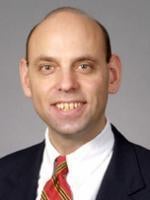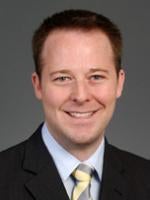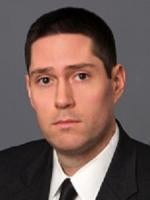On Tuesday, December 8, 2020, the United States Supreme Court heard oral argument on the question of what type of dialing equipment qualifies as an “automatic telephone dialing system” (ATDS) under the Telephone Consumer Protection Act (TCPA). The Court granted certiorari to resolve a split among the federal circuit courts of appeals that had construed the meaning of the term. The Ninth Circuit ruling on review had reaffirmed a broad definition of ATDS, but other recent decisions had construed the term more narrowly.
The plain language of the TCPA states that an ATDS is “equipment which has the capacity to store or produce telephone numbers to be called, using a random or sequential number generator; and to dial such numbers.” 47 U.S.C. § 227(a)(1). After the D.C. Circuit abrogated the Federal Communications Commission (FCC) rulings construing that language, see ACA International v. FCC, 885 F.3d 687, 701 (D.C. Cir. 2018), federal circuit courts have taken different approaches in interpreting the statute. The Second, Sixth, and Ninth Circuits have held that to constitute an ATDS, a dialing system need only have the capacity to “store numbers to be called” and “to dial such numbers automatically.” See Allan v. Pa. Higher Educ. Assistance Agency, 968 F.3d 567, 574 (6th Cir. 2020); Duran v. La Boom Disco, Inc., 955 F.3d 279, 283-84 (2d Cir. 2020); Marks v. Crunch San Diego, LLC, 904 F.3d 1041, 1052-53 (9th Cir. 2018). The Third, Seventh, and Eleventh Circuits, on the other hand, have construed the definition of ATDS more narrowly. These courts have held that a system cannot constitute an ATDS where it lacks the capacity either to (1) store telephone numbers to be called using a random or sequential number generator, or (2) produce telephone numbers to be called using a random or sequential number generator. See Gadelhak v. AT&T Servs., Inc., 950 F.3d 458, 464, 469 (7th Cir. 2020) (Coney Barrett, J.); Glasser v. Hilton Grand Vacations Co., 948 F.3d 1301, 1310 (11th Cir. 2020); Dominguez v. Yahoo, Inc., 894 F.3d 116, 119-21 (3d Cir. 2018). The Supreme Court’s decision following oral argument will likely resolve the circuit split.
During oral argument, the justices each asked the parties a number of questions regarding, among other topics, (1) interpretation issues related to the grammatical construction of the definition of ATDS; (2) the types of technology that Congress intended to regulate when it enacted the TCPA in the early 1990s versus in 2020; (3) whether a broad interpretation of ATDS would risk bringing the use of technology, such as smart phones and instant messaging, within the scope of the TCPA and thereby subjecting ordinary persons to the harsh penalties of the statute; (4) whether a narrow interpretation of ATDS would cause the public to be “flooded with robocalls;” and (5) the proper roles of the courts, the FCC, and Congress in applying the TCPA to modern-day technology. Justice Thomas asked both parties whether the statute was an “ill fit” for current technology and whether it should be regarded as “vestigial,” and Justice Alito made reference to Judge Guido Calabresi’s theory that courts could render statutes “obsolete” (although being careful to note that the Supreme Court has never adopted that theory). And although the questions posed by the justices do not always reveal their ultimate position, it appears that the conservative members of the Court (Justices Thomas, Alito, Gorsuch, Kavanaugh, and Coney Barrett, who authored the opinion in Gadelhak) favor a narrow interpretation of ATDS, similar to the positions taken by the Third, Seventh, and Eleventh Circuits. It appears that Justice Sotomayor favors a broader interpretation in line with the Second, Sixth, and Ninth Circuits. It is unclear, however, based upon their questions alone, which were at times critical of both sides’ positions, what position the Chief Justice and Justices Breyer and Kagan might take in this case.
The Supreme Court is expected to issue its decision by mid-2021.






 />i
/>i
